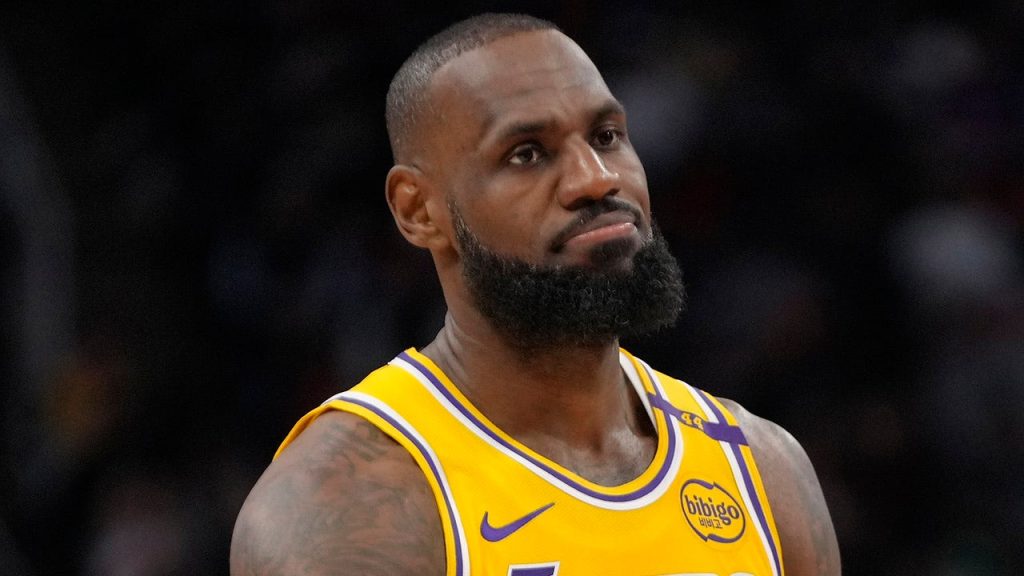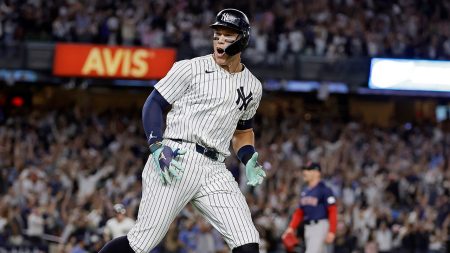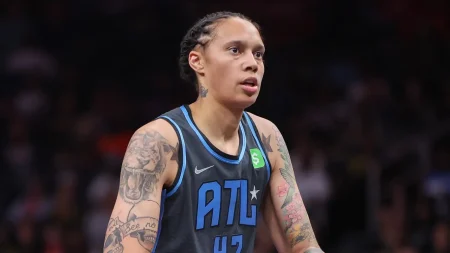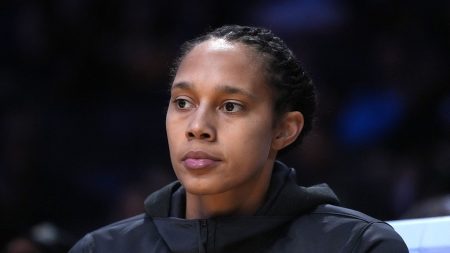The NBA’s Three-Point Dilemma: A League Grappling with Declining Viewership and an Evolving Game
The National Basketball Association (NBA) finds itself at a critical juncture, wrestling with a significant decline in viewership that extends beyond the initial weeks of the season and casts a shadow over even marquee events like the Christmas Day games. While various explanations have been proposed for this downturn, a recurring theme centers around the evolving nature of the game itself, with the proliferation of three-point shots and a perceived lack of defensive intensity drawing comparisons to the often-criticized NBA All-Star Game. This trend, characterized by a barrage of long-range attempts and a decline in traditional defensive strategies, has raised concerns about the overall aesthetic appeal of the regular season and its impact on viewer engagement.
The All-Star Game, traditionally a showcase of the league’s top talent, has in recent years become synonymous with high-scoring affairs dominated by three-pointers, uncontested dunks, and minimal defensive effort. This spectacle, while entertaining to some, has also drawn criticism for its lack of genuine competition and resemblance to a glorified exhibition match. The league’s attempt to inject renewed excitement into the event by introducing a four-team tournament format this year reflects an acknowledgment of the need to address the concerns surrounding the game’s entertainment value. However, the underlying issues impacting the regular season persist, prompting a broader conversation about the direction of the league and its relationship with its audience.
LeBron James, a prominent voice in the NBA, has acknowledged the shortcomings of recent All-Star Games while emphasizing that the league’s challenges extend beyond this single event. His observation that "there’s a lot of f—ing threes being shot" highlights the growing concern that the emphasis on three-point shooting has fundamentally altered the dynamics of the game, potentially at the expense of other aspects that traditionally drew viewers in. James’s willingness to explore changes to the All-Star Game format and his call for a "bigger conversation" about the game itself underscore the urgency of addressing these issues. The league must grapple with the question of how to balance the evolving offensive strategies with the fundamental elements that have historically defined the sport.
The statistical evidence supports the observation regarding the increased prevalence of three-point attempts. The league is witnessing a record pace of three-pointers made, missed, and attempted overall, a trend that reflects the strategic shift towards long-range shooting. While this offensive strategy has undeniably added a new dimension to the game, it has also raised questions about its impact on the overall flow and balance of the game. The potential for a decline in other aspects, such as mid-range shooting, post-play, and defensive intensity, has sparked debate about the long-term consequences of this evolving style of play.
The declining viewership numbers paint a stark picture of the challenges facing the NBA. Ratings for games broadcast on major networks like ESPN, ABC, TNT, and NBA TV are down a significant 25% compared to the previous year. While various factors may contribute to this decline, including changes in media consumption habits and the increasing availability of alternative entertainment options, the concerns about the on-court product cannot be ignored. NBA Commissioner Adam Silver has cited the decline in cable TV subscriptions as a contributing factor, but this explanation does not fully address the broader concerns about the game itself. The league must consider the possibility that the evolving style of play, with its emphasis on three-pointers and perceived lack of defensive intensity, may be alienating some viewers who prefer a different brand of basketball.
The NBA’s challenge lies in finding a way to balance the exciting elements of the modern game, such as the athleticism and long-range shooting prowess, with the fundamental principles that have historically defined the sport. The league must consider whether the current emphasis on three-pointers has come at the expense of other aspects that contribute to the overall entertainment value, such as balanced offensive strategies, robust defensive schemes, and the development of well-rounded players. The "bigger conversation" that LeBron James advocates for must address these complex issues and explore ways to ensure the long-term health and appeal of the game. The league needs to engage in a thoughtful and comprehensive evaluation of its current trajectory, taking into account the perspectives of players, coaches, fans, and media, to ensure the future of the NBA remains vibrant and captivating.










